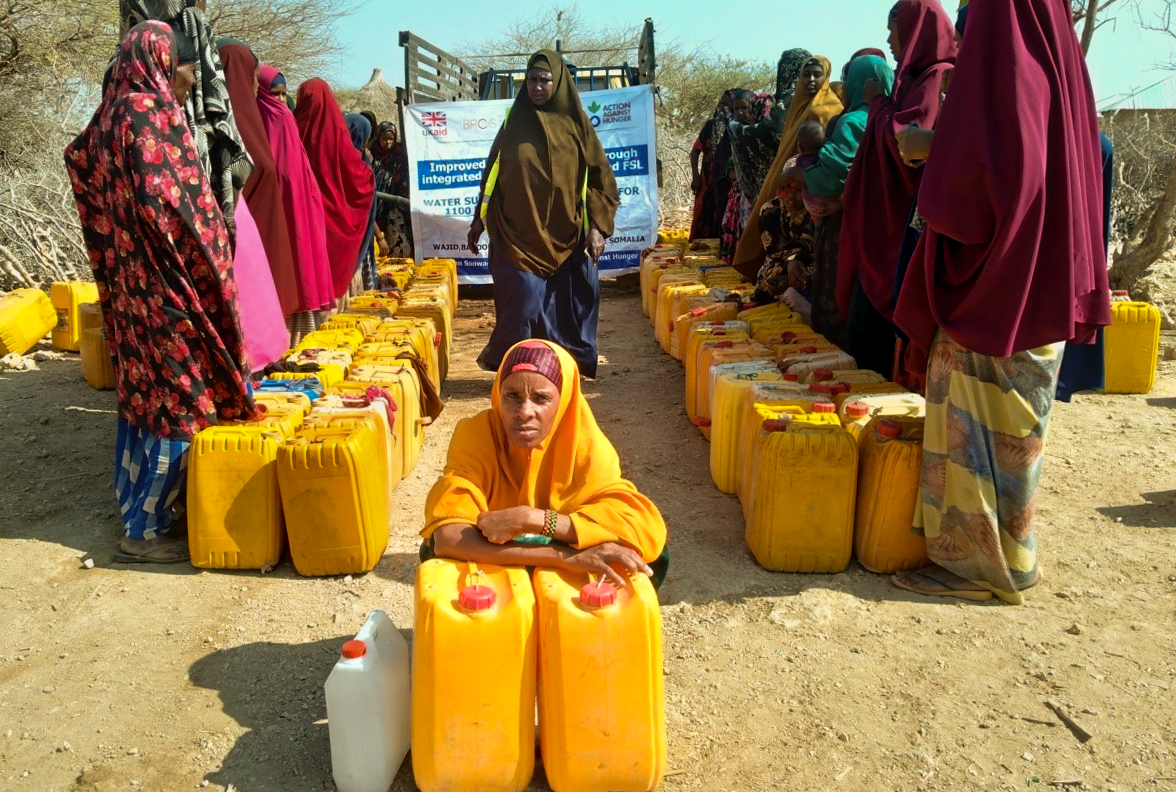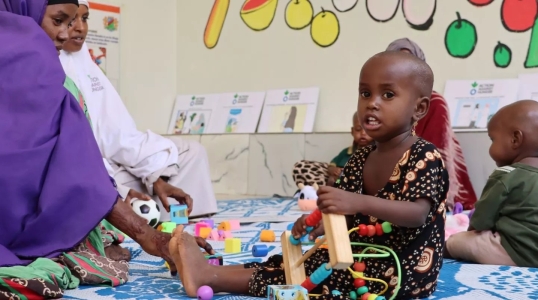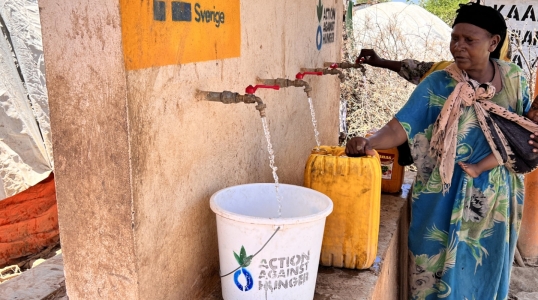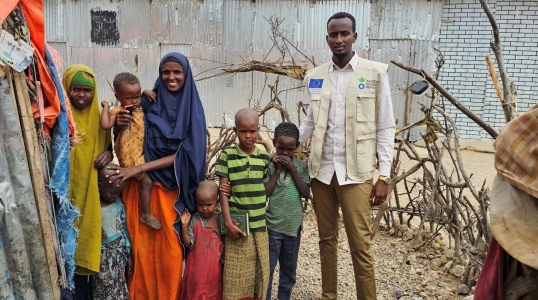
GIVE THIS RAMADAN

Around the world, women and girls are responsible for fetching water in 80% of households. When water is scarce, their journey to find water is often longer and more dangerous. Women and girls face the risk of sexual and gender-based violence while walking for hours out in the open to the nearest well.
In the district of Wajid, Somalia, severe drought has caused water prices to spike: from February to March, the costs increased by 40%. Families struggling to survive the drought, who have already seen their livestock and livelihoods die out, cannot afford to pay more for water. Additionally, the few wells with any water left are muddy and polluted, making them unsafe to drink. The contaminated water has caused illnesses like acute watery diarrhea and cholera, making children more vulnerable to malnutrition.
Action Against Hunger has been delivering 45 liters of clean water per day to more than 1,100 families in Wajid through emergency water trucking with support from UK Aid. To improve sanitation and stop the spread of hygiene-related illnesses, Our teams also distributed hygiene kits and provided hygiene awareness sessions.
Sa’diyo Adan Hassan is a mother of five children who relocated from Balowka village, 27 km from Wajid. She used to carry a 20-liter jerrycan of muddy water on her back each day from the nearest well. Then the well dried up, leaving her family and 270 others in her village desperate for water. Sa’diyo started to received water from Action Against Hunger.
“When our well dried up, many people from my area moved to other neighborhoods that had wet wells where they could get water. But I decided to walk about [about a mile] every day to fetch water from the other end of the town,” said Sa’diyo.
Sa’diyo and her fellow mothers are not only responsible for getting water; they also have to care for their children and their homes – there is little time for a mile-long walk to fetch water. Sa’diyo and three of her neighbors decided to walk to the well together while their children slept.
“Walking to the well worried me a lot, as I was putting myself at risk by walking very early in the morning when the majority of the people were asleep. In one way, I feared for my children, whom I left with no one to look after, and on the other hand, I feared for myself, as anything could happen to me and my neighbors as women,” says Sa’diyo.
Action Against Hunger’s teams provided water to the most vulnerable families, as well as cash assistance to help them buy food. Sa’diyo’s family received treated clean water every day for 30 days, distributed from a truck located about 130 feet from her home. “We are thankful for Action Against Hunger’s timely assistance. It came at a time of great need. Now we ask Allah for rain,” she says.
As the drought worsens, many communities that previously relied on shallow wells, water kiosks, and dams are increasingly dependent on water trucking for survival. Action Against Hunger has sent water trucks to communities throughout Wajid – in total, across this district, we have supported about 2,000 families with water and cash assistance.



Join our community of supporters passionate about ending world hunger.